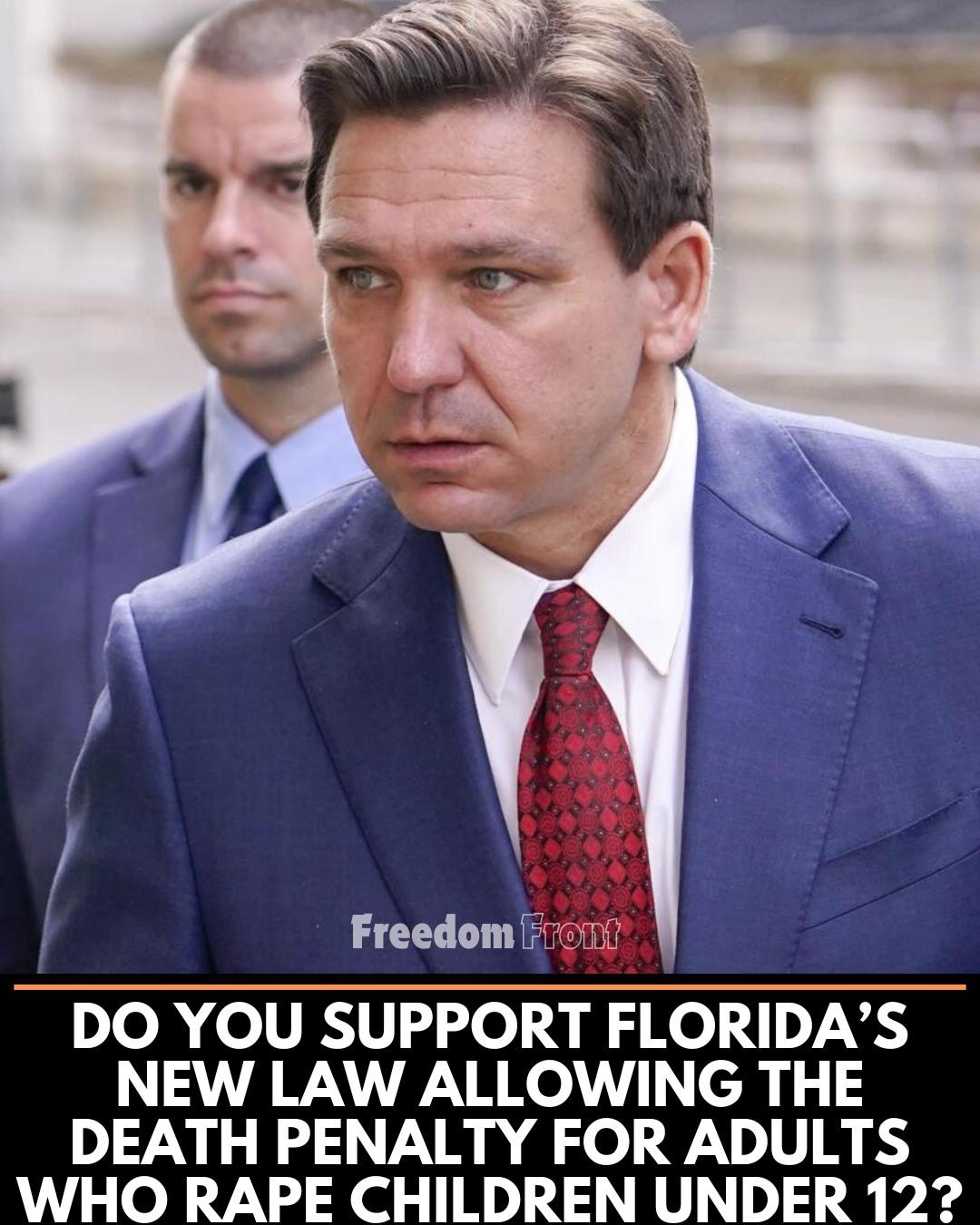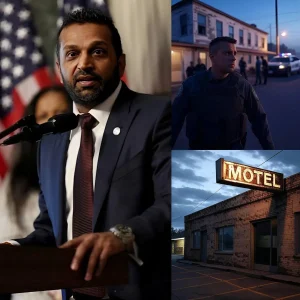In a seismic shift that’s set social media ablaze, Florida’s new law, effective October 1, 2023, allows the death penalty for adults convicted of raping children under 12, defying a 2008 U.S. Supreme Court ruling that deemed such punishment unconstitutional. Signed by Governor Ron DeSantis, House Bill 1297 has sparked a firestorm of debate, with Threads exploding in viral posts, from cheers of “justice served” to cries of “cruel and unusual punishment.” The law, which only requires eight of twelve jurors to recommend execution, positions Florida as a battleground for one of the most controversial legal experiments in recent memory. Is this a bold stand for child protection, or a dangerous step toward vengeance that could haunt victims and taxpayers alike?

The legislation, passed with bipartisan support (34-5 in the Senate, 95-14 in the House), reflects a growing sentiment that child sexual abuse demands the harshest consequences. DeSantis, speaking at a Brevard County press conference, called these offenders “the worst of the worst,” emphasizing their serial nature. “We stand for the protection of children,” he declared, framing the law as a challenge to the Supreme Court’s Kennedy v. Louisiana decision, which barred capital punishment for non-homicide crimes against individuals. With a conservative-leaning Supreme Court in 2025, DeSantis and supporters like Senate Minority Leader Lauren Book, a child abuse survivor, hope to overturn this precedent. Book, who founded Lauren’s Kids, argued, “There’s no statute of limitations on the trauma victims endure. This is their life sentence.”
The law’s first test came in December 2023, when Lake County prosecutors sought the death penalty against Joseph Andrew Giampa, 36, for sexual battery and promoting a child’s sexual performance. State Attorney Bill Gladson called the charges’ gravity a justification for capital punishment. However, Giampa pleaded guilty and received life in prison after prosecutors consulted the victim’s family, highlighting a complex reality: not all victims or families support execution. Maria DeLiberato, executive director of Floridians for Alternatives to the Death Penalty, warns that the law could retraumatize victims. “A death penalty case drags on for decades,” she said, noting that 90% of child sex abuse victims know their abuser, often a family member, complicating testimony and emotional recovery.
On Threads, the law has ignited fierce debate. Posts like “Florida’s sending a message: hurt a kid, face the ultimate price!” from users like @CharlieK_news have racked up thousands of likes, while others, like @corndnc12, ask, “Do you support this? A. YES B. NO,” driving polarized responses. Some celebrate the law as a deterrent, with @kath21_field posting, “Florida’s got it right! 👏🏻” Others fear it could backfire, with one Reddit user arguing, “If rape and murder carry the same penalty, why not kill the victim to avoid witnesses?” This chilling logic, echoed by social workers in the 2008 Supreme Court case, suggests the law might increase risks to children rather than reduce them.
Critics, including University of Miami law professor Craig Trocino, call the law unconstitutional, predicting costly legal battles. “This invites unnecessary litigation and taxpayer expense,” Trocino said, referencing the Supreme Court’s 5-4 ruling that deemed the death penalty for child rape “grossly disproportionate” under the Eighth Amendment. Aaron Wayt of the Florida Association of Criminal Defense Lawyers added, “Courtrooms must prioritize justice, not vengeance,” warning that the law could deter victims from reporting abuse, especially when perpetrators are relatives. Despite these concerns, supporters like Senator Jason Pizzo, a former prosecutor, insist that child predators are beyond rehabilitation, justifying the law’s severity.

The law’s lower jury threshold—eight jurors instead of twelve—has also raised eyebrows. Florida, now with the nation’s lowest death penalty threshold alongside Alabama, changed this rule after a 2018 Parkland shooting case where a non-unanimous jury spared the shooter’s life, sparking outrage. DeSantis, eyeing a “law and order” image, sees this as a necessary reform. Yet, with Florida leading the nation in death row exonerations, per the Death Penalty Information Center, critics fear wrongful convictions. “The system isn’t perfect,” DeLiberato noted, pointing to the risk of executing innocent people.
As the law faces inevitable Supreme Court challenges, its ripple effects are already felt. Other states, like Tennessee and Kentucky, introduced similar bills in 2024 and 2025, signaling a potential shift in national standards. On social media, hashtags like #FloridaDeathPenalty and #ProtectKids trend alongside deepfake videos and memes, amplifying the controversy. One viral post falsely claimed, “DeSantis says all child predators will face execution by 2026!”—debunked but widely shared. The law’s fate hinges on whether the Supreme Court, with its new composition, reconsiders “evolving standards of decency.”
For now, Florida’s experiment divides the nation. Advocates see it as a moral stand; detractors, a constitutional overreach. As victims, families, and taxpayers brace for long legal fights, one question looms: Will this law protect children or deepen their trauma? The answer may reshape justice in America.






